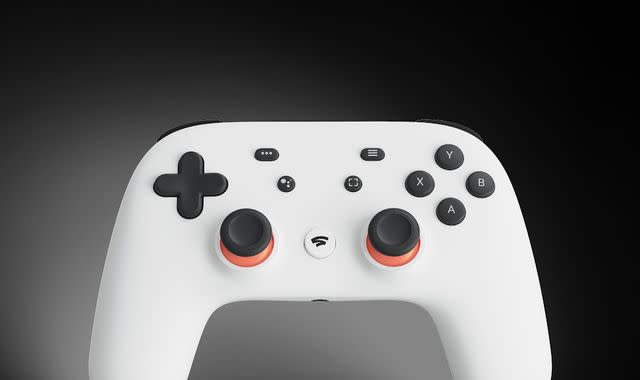Game over for Google Stadia - but will it take cloud gaming with it?

Google Stadia, the tech giant's ill-fated venture into the video game industry, is taking its final breaths after little more than three years.
Launched in November 2019 with the goal of making a major dent in a space long dominated by Microsoft's Xbox, Sony's PlayStation, and Nintendo, executives appeared convinced that players would be quick to ditch their traditional consoles and take their hobby into the cloud.
But while the likes of Netflix, Amazon, and Disney have seen us embrace streaming en masse for films and TV, Google's hopes of gamers doing the same have never looked close to coming to fruition.
Reports suggest an internal target of one million monthly active users (Netflix has 223 million) wasn't reached, with 2020 numbers peaking at around 750,000.
For a company the size of Google that was never going to be enough. Its closure was confirmed last year, beginning a countdown clock which ends at 8am UK time on Thursday.
As developer Mike Rose, founder of studio No More Robots, told Sky News upon word of Stadia's demise: "The writing had been on the wall for a while."
No More Robots was still working on a game for the platform when its closure was announced, but releases by then were few and far between.
While Google did attract blockbuster franchises like Assassin's Creed, Doom, and FIFA in its first few years, none enjoyed close to the same success they're used to on traditional consoles.
Gamers are a notoriously tribal bunch, and something quite extraordinary needs to happen for them to abandon the brand loyalty they have to their platform of choice.
And while Stadia never built a big library of enticing exclusives, those which did make the service their only home will vanish from existence, raising concerns about game preservation.
Its closure has been marked with a final release, Worm Game, which Google used internally to test features.
But never mind the games, Stadia had other problems.
Read more:
Is this gaming's watershed moment?
Streaming giants in the film and TV space went global by taking advantage of the technology to make themselves accessible just about anywhere, with a business model to match.
Thousands and thousands of things to watch, anywhere and everywhere, for one monthly fee.
Stadia may have been available on everything from smart TVs to smartphones, but its pricing strategy - certainly during its first 18 months of release - never looked massively enticing.
Its Pro subscription tier, which was required to stream games in the best possible quality, offered a relatively paltry selection of titles, far removed from the vast libraries that have kept people hooked elsewhere.
For everything else on the service, including aforementioned heavy hitters like FIFA and Assassin's Creed, players needed to cough up the same full price demanded on other platforms.
This was a tough sell, as Stadia's versions of popular games were usually deemed inferior to their console cousins, although Google has been offering refunds as part of its make-good farewell tour.
Read more:
Will PlayStation's subscription service win over fans?
Do gamers even want to stream?
Without doubt, the most existential question that faced Stadia was whether game streaming was viable.
Moments where your Amazon film briefly drops in picture quality or needs to buffer are annoying, sure, but nothing compared to the impact a dodgy connection can have on a game.
While an Xbox or PlayStation has your controller connected straight to the console via a cable or Bluetooth, a Stadia controller is commanding a game that's being played on a remote server hundreds or thousands of miles away.
And any latency at all between the press of a button and the action on screen can be fatal.
Even Netflix knows this - it is dipping its toe into gaming, but offers a selection for download rather than streaming.
Read more:
The future of streaming services
'The future of video games'
Stadia need not be the death-knell for cloud gaming, perhaps more a case of trying to run before it could walk.
Despite his setback, No More Robots' Mike Rose bullishly declared cloud gaming "the future of video games".
Until superfast internet speeds go truly mainstream, it's hard to envisage cloud gaming doing so either.
But industry leaders Sony, Nintendo and Microsoft all offer game streaming to varying degrees - they've not made the fatal mistake of basing their entire platform around it, but it's a growing priority.
Xbox Game Pass, the closest the industry has to a "Netflix for games", is increasingly offering its vast catalogue for streaming on phones and tablets rather than just download on a console - and has north of 25 million subscribers.
It might be game over for Google Stadia, but don't count the cloud out just yet.


